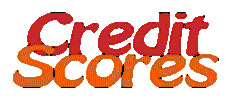Role of Credit Scores in Mortgage Process
Ever since the creation of Credit Scores they have played an important  roll in obtaining a mortgage. However, since 2009 Credit Scores Are Playing An Even Larger Roll In The Mortgage Process. This is especially true with Conventional Mortgages, because the emphasis that Fannie Mae and Freddie Mac have placed on them. So in RI real estate and beyond the same principles hold true.
roll in obtaining a mortgage. However, since 2009 Credit Scores Are Playing An Even Larger Roll In The Mortgage Process. This is especially true with Conventional Mortgages, because the emphasis that Fannie Mae and Freddie Mac have placed on them. So in RI real estate and beyond the same principles hold true.
Conventional Lending Guidelines have gone through major changes since 2009. One of the more significant changes that has taken place during that time is the impact that Credit Scores now have not only on qualifying for a Conventional Mortgage, but also on the cost of obtaining it.
These days Credit Scores in mortgage process are playing a major part on how much money a Borrower will have to come up with at Closing.
If the Credit Score is under 740, or the down payment is less than 25%, the Borrower will have to pay points. For example, if a Borrower puts down 25% and their Credit Score is 740 or higher they do not pay any points. If a borrower has a 640 Credit Score they will be charged with 2.875 points, that is a $2,875 additional cost for every $100,000 borrowed. This point structure is being imposed by Fannie Mae, and the money from the points goes to Fannie Mae. So not having a Credit Score of 740 or higher can prove to be very costly to a Borrower.
Why not contact a mortgage loan officer to see what your Credit Scores are? I know that there are a million companies offering free credit reports that you can pull yourself. By having a Loan Officer check your credit, you will eliminate surprises when you are ready to purchase a house. If your Credit Scores are not high enough, the Loan Officer can tell you what needs to be done to bring them up to where they need to be.
There are three major things that have the biggest impact on your credit. They are Credit History, Years of Credit, and Available Credit. The third, Available Credit has a much quicker impact on the upward or downward movement of a Credit Score.
-
Credit History: Which represents 35% of a Credit Score, and it is the history of how well you have paid your bills during the time you have had credit. However, late payments, charge off’s, or collections that are over two years have very little impact on a credit score. In fact it is better to not pay off a collection that is over two years old, because that could actually bring down the score.
-
Years of Credit: Also know as length of credit. This simply is the number of years that you have had credit, the longer the number of years with good credit the higher the score. This represents 12% of a Credit Score.
-
Available Credit: Available Credit is just what it says, it is the amount of credit that is available to you. For example the number of credit cards you have, and how much of the credit limit on the cards are still available. If you are over 30% of the available credit on a credit card it has a negative impact on your credit. If you are over the Credit Limit it has an even bigger negative impact on your credit. So a quick way to improve your credit is pay down your credit cards to less than 30% of the Credit Limit. This has a huge quick improvement on your scores, and it represents 30% of your Score.
By contacting a Loan Officer and reviewing your Credit Report with him/her you will not only be able to see where you stand, but also receive the necessary help if your Credit is in need of improvement. Also closing out unused credit cards does not help your credit. You are better off keeping them open, because it adds to the amount of available credit you have.
Maintaining high Credit Scores can be the difference between a Borrower having enough money to purchase a home or not. But even if money was not an issue for a Borrower, I for one would rather keep my money by having high Credit Scores than to give it to Fannie Mae. Role of Credit Scores in Mortgage Process.
~~~~~~~~~~~~~~~~~~~~~~~~~~~~
This blog post is courtesy of my guest blogger, George Souto. About the author and my Guest Mortgage blogger:
George Souto is a Loan Officer who can assist you with all your FHA, CHFA, and Conventional mortgage needs in Connecticut. George resides in Middlesex County in Connecticut which includes Middletown, Middlefield, Durham, Cromwell, Portland, Higganum, Haddam, East Haddam, Chester, Deep River, and Essex.George can be contacted at (860) 573-1308 or gsouto@mccuemortgage.com.
This blog is brought to you by Ginny Lacey Gorman the waterfront RI Real Estate agent providing solid mortgage information to clients everyday. Need help in buying or selling real estate then give me a call at 401-529-7849 or email me at RiByTheBay@gmail.com. RI is my backyard of real estate.




Hello Ginny,
Thank you for the additional information on how having a good and balanced credit score plays a vital role on how much money a Borrower will have to come up before making a decision. You are indeed one of the best north kingstown short sale agents. Thumbs up!
“Debra Harr
Homes that click Realtors
Worthington Ohio Short Sales
Agents“
A very straight forward and informative article on the role of credit scores in mortgage process. By understanding the significance of a credit score will empower buyers to be more aware before purchasing a property. Another great write up from one of the best north kingstown short sale agents Ginny. Keep up the good work!
“Katerina Gasset
Wellington Short Sales
Wellington Short
Sales Agents“
This is good information. The best way to start improving your score is to pay your bills on time. Then, after you get your loan and have found a house, don’t buy anything on credit until your home closes.